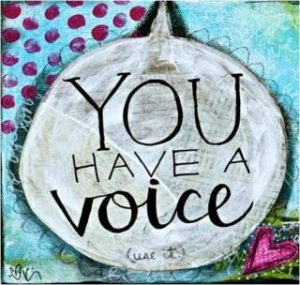Loneliness and BED: Am I the Only One Who Binge Eats?
Many times binge eating and binge eating disorder (BED) is coupled with intense loneliness and people wonder if they are the only one who binge eats. It is time we who suffer realize we are not alone. There are millions of others who are right here, going through the same thing. If we can create a community and engage in conversation around our binge eating behaviors, we can start to free ourselves from the burden of shame along with our feeling of loneliness associated with BED.
The Lonely Beginning of My Binge Eating Disorder
When I developed binge eating disorder at the age of 14, I had no clue what was going on with me. I could not fathom the reasoning for my need to shovel food into my face whenever I was alone. I assumed no one else behaved in this way. I kept quiet. Quiet quickly lead to misery and a raging feeling of loneliness. I thought no one would understand what I was going through. I thought this way for far too long which aided in more hurt as time passed.
It was not until years later that I learned binge eating was a real disorder that many people suffer from. Upon learning this, a rush of relief came -- I'm not the only one who binge eats.
Time still passed before I received help for my eating disorder (Binge Eating Disorder Treatment). Once the floodgates opened and I was talking about these things, the gates could never be shut again.
Conversation Around Binge Eating Disorder Ends Loneliness
Conversation is a tool that can be very valuable when recovering from an eating disorder. Discussing feelings with others in similar situations helps lift the loneliness and shame that surrounds these behaviors. When you speak with someone and fully connect his or her story to yours, it is powerful. This creates community. This community becomes support. This support is what helps fuel recovery.
Speak Up About Binge Eating Disorder to Stop Lonely BED Feelings

I understand the amount of isolation and loneliness binge eating disorder can bring. I understand the resistance that exists with respect to conversation around the subject. We need to continue to push through this resistance and speak. Speak to fellow sufferers, speak to your treatment team, and speak to those who may not understand. Educating people will allow them to stand in your corner while you fight for your recovery.
I wish I would have been strong enough to do these things when I was that lonely 14-year-old girl. Wishing, however, will not get me anywhere. What I can do now is continue to reach out, keeping the loneliness as far away as possible. Though it may show its face at times, these days we do not visit often.
Speak up. Try a support group. Talk to a counselor. Try your best to do something that helps you to feel less alone. Remember, you are not the only one out there going through this. I am standing there in your corner, giving you all my support in recovering. You are not solo on your journey.
More About Binge Eating Disorder and Loneliness
Find Grace on Twitter, Facebook, Google+ and on her personal blog.
APA Reference
Bialka, G.
(2016, September 18). Loneliness and BED: Am I the Only One Who Binge Eats?, HealthyPlace. Retrieved
on 2026, January 12 from https://www.healthyplace.com/blogs/bingeeatingrecovery/2016/09/am-i-the-only-one-who-binge-eats